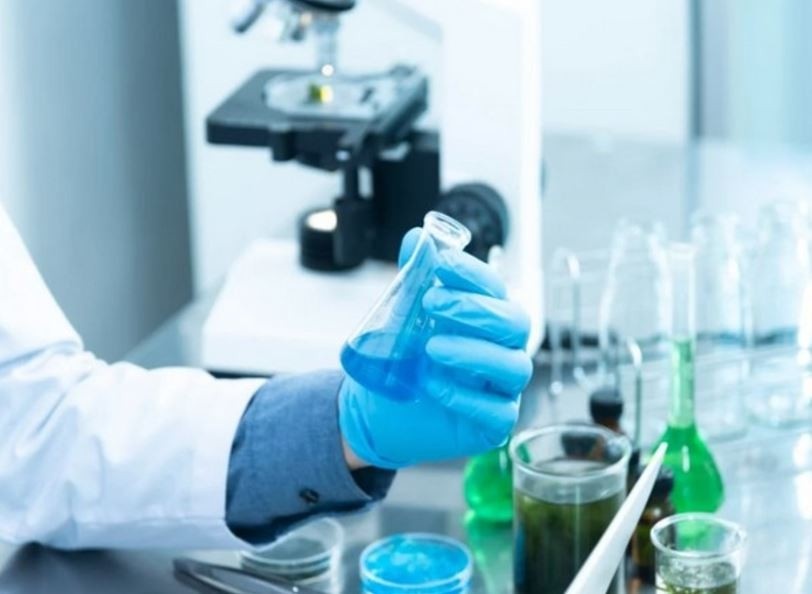
Berlin [Germany]: Researchers in Michael Sigal's lab at the Max Delbruck Center and Charite - Universitatsmedizin Berlin have discovered the significance of the p53 gene in ulcerative colitis. The work, published in Science Advances, proposes a potential new therapeutic target for preventing illness progression to cancer.
A team of researchers led by Kimberly Hartl, a graduate student at the Berlin Institute for Medical Systems Biology of the Max Delbruck Center (MDC-BIMSB) and Charite - Universitatsmedizin, have shed new light on the role of the p53 tumor suppressor gene in the pathogenesis of ulcerative colitis (UC) - an inflammatory bowel disease that afflicts an estimated five million people worldwide and that is linked to an increased risk of colon cancer. The research points to a new way to stop the disease from progressing. The study was published in the journal Science Advances.
"In patients with ulcerative colitis who are at high risk for developing cancer, we could potentially target aberrant cells and get rid of them early, before any cancer occurs," says Professor Michael Sigal, Group Leader of the Gastrointestinal Barrier, Regeneration Carcinogenesis lab at MDC-BIMSB, Head of Luminal Gastroenterology at Charite, and a senior author of the paper.
A key role for p53: Ulcerative colitis affects the large intestine, specifically areas called "crypts," tube-like glands within the epithelial tissue that lines the intestine.
Crypts contain stem cells and other cell types that maintain the health and normal function of the colon, such as absorbing nutrients or secreting mucus.
Also Read |
Health: Cancer risk linked to p53 in ulcerative colitis
When the colon is injured, epithelial crypt cells enter a "repair mode." They begin to proliferate rapidly to fix the injury.
However, in patients with UC and UC-related colon cancers, these cells become stuck in repair mode, which scientists refer to as a "regenerative cell state." As a result, there are too few mature cells. Consequently, the colon struggles to function normally, which triggers even more stem cell proliferation in a toxic feedback loop.
In the current study, Hartl found this defective repair mechanism is linked to a non-functional p53 gene, which plays a key role in regulating the cell cycle and in repairing DNA.
"If there is no p53, cells remain in a proliferative state," Sigal explained.
Existing tests to find precancerous lesions in patients with UC such as colonoscopies can identify visible lesions that sometimes are not easy to remove, says Sigal. This study could be a first step in developing molecular tools for a less invasive diagnostic test that would allow physicians to identify the aberrant cells much earlier, even before visible alterations occur, he added.
Also Read |
Health: New antibody could be promising cancer treatment
To study the repair process, the researchers developed a three-dimensional organoid - a mini organ - model of the colon grown from mouse stem cells.
Together with specialists in DNA and RNA sequencing as well as proteomics and metabolomic technology at the Max Delbruck Center, they found that cells in organoids lacking p53 are stuck in the regenerative state. Thus, the cells metabolize glucose more rapidly via the process of glycolysis. By contrast, when p53 is active, it diminishes glucose metabolism and signals cells to re-enter a healthy state.
The scientists then treated the organoids with compounds that interfere with glycolysis to test whether they can target these highly proliferative cells. They found that cells that lacked the p53 gene were more vulnerable to this treatment than normal cells. "With organoids, we can identify very specific agents that can target metabolic pathways and point us toward potentially new therapeutics to selectively target mutated cells," Hartl added.
The next step is to transfer these findings to the human setting. The researchers are also now studying the repair process in more detail with the goal of developing more simple methods to identify cells with defective p53 genes in colon tissue.
"Once we have a simple method of identifying these individual cells in colon tissues, we could perform clinical studies to selectively kill them, and then analyse whether this is associated with a lower risk of developing cancer," said Sigal. (with agency inputs)


.jpg?w=600)




